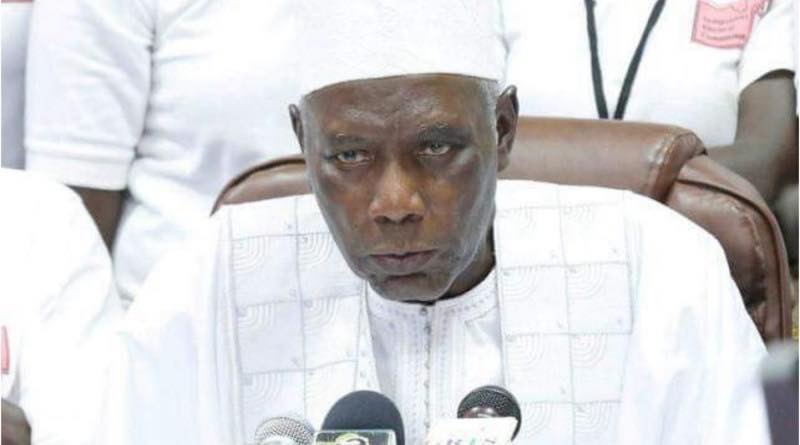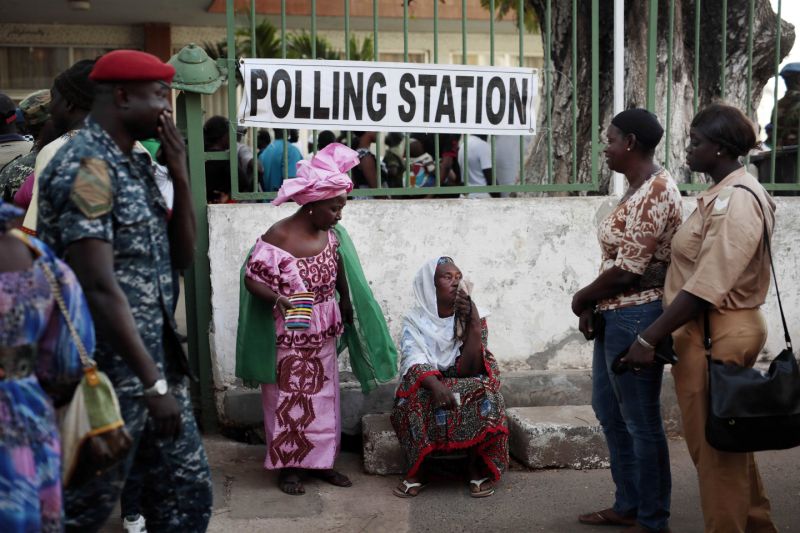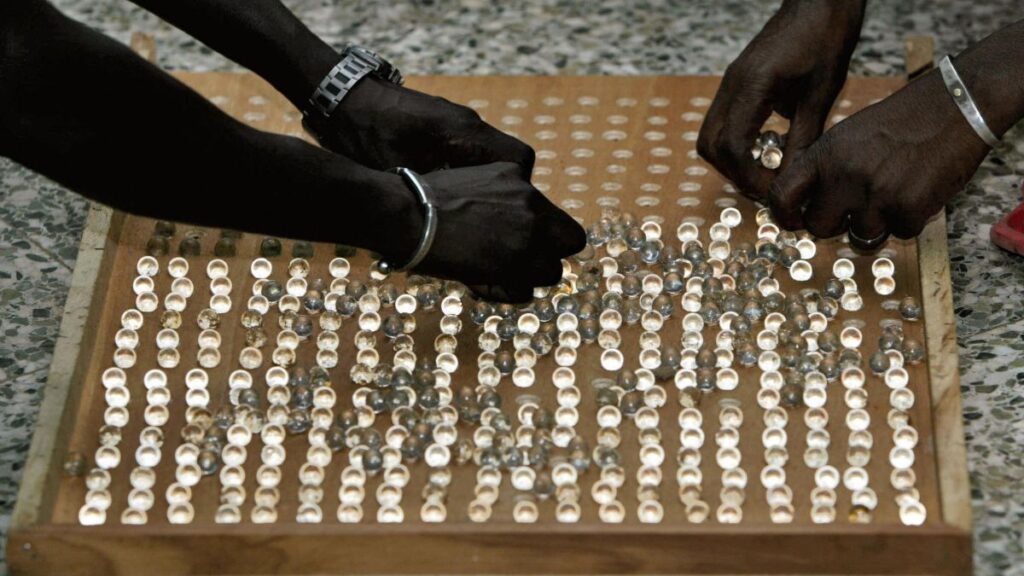
Abortion of values and dreams is a routine stay in The Gambia. When foetus eaters are embedded in clinics as midwives, do not expect any safe delivery. I am still amused (or amazed) that smart people around I know were shocked by what happened to our electoral democracy.
The Gambia has taught me to expect things collectively to go wrong all the time.
The recent lawsuit filed by Dr. Isamaila Ceesay, standard-bearer of Citizens’ Alliance, challenging the Independent Electoral Commission (IEC) decision of objection and to candidates nominations to contest on December 4, 2021, presidential election kept up in the High Courts for less than two weeks to the election, has raised genuine questions about whether this is consistent with the constitutional imperative of timely resolution of electoral disputes.
Eternal vigilance is the price of liberty. Nothing from the Independent Electoral Commission (IEC), no matter how reprehensible, has been worthy of the rebuke of his hailers and wailers.
The electoral commission forgets that the world will be destroyed by self-righteous strongmen rabidly supported by hordes of unquestioning men and women.
“Barbarians,” Aristotle said, “being more servile in character than Hellenes, and Asiatics than Europeans, do not rebel against a despotic government.”
People of wisdom will not ever be comfortable with Lion feeding wayward antelopes daily to his cubs in the name of sanitizing the forest.
The fourth president of the United States, James Maddison, warned his people that “if tyranny and oppression come to this land, it will be in the guise of fighting a foreign enemy.”
Maddison again warned that all men having power ought to be distrusted to a certain extent because “where there is interest and power to do wrong, wrong will generally be done.” We will see more from the IEC chairman Alhagie Alieu Momar Njie going forward.
There is, however, nervousness about how the IEC will fare after the Gambia’s democracy survives political turbulence in the 2016 presidential elections following the electoral body imbroglio in final vote counts pf election results that precipitated the fall of a long-time dictator defeated in an election.
The IEC held by-elections with textbook efficiency. However, troubles began over a tender for biometric voter registration kits and recent vetting and objections of registered presidential candidates by rejecting other candidates on technical grounds.

In addition, there are integrity questions regarding some commissioners. The composition of the commissioners was motivated not by merit but by the coalition government’s need for ethnic and regional balance; however, people questioned the IEC’s capacity to act decisively on electoral disputes and pointed to its inability to censure rogue parties and politicians during the chaotic party primaries.
It is indeed infamy that in The Gambia, after 56 years of independence with a long tradition of uninterrupted democratic dispensation until July 1994, when the military seized power, we still struggle to conduct free, fair, and credible elections.
Virtually every election results in the Gambia are always fiercely and vehemently disputed with some considerable amount of justification.
While elections have been successfully held in other African countries such as Botswana, Cape Verde, Ghana, and other neighboring countries in the sub-region devoid of violence and massive election fraud, the Gambia’s election has habitually been fraught with irregularities.
Admittedly, the political stakes involved in elections in the Gambia are very high, as political offices ensure instant access to a vast amount of wealth and social preferences.
Many politicians get into politics, not for public service or good, but the accumulation of wealth and the desirability of position.
Electoral fraud and irregularities are primarily practiced and improvised by these politicians; hence, alienating the electorate and disenfranchising them from performing totally in the electoral process automatically renders that election having credibility issues.
Credible, accessible, and fair elections are fundamental and crucial for the success of any democratic society in any part of the world. Where the integrity of elections is undermined, there would invariably be a direct challenge to the stable and democratic society we in the Gambia have been trying to develop since independence.
The Independent Electoral Commission (IEC) has committed irregularities and illegalities, which affected the credibility of the IEC and its commissioners in conducting a free and fair election.
The legitimacy of elections cannot be separated from the IEC’s competency, professionalism, and independence in administering them.
However, the IEC is the institution entrusted by law with administering elections. The Constitution purports to establish it as an independent or autonomous body, detached from political considerations.

Specifically, the Gambia’s High Court found that the IEC compromised the principle of independence and neither accountable nor verifiable disqualifying other presidential candidates to contest the December 4 presidential polls; however, the validity of disqualifying Dr. Ismaila Ceesay and other presidential candidates to participate in the elections cannot stand in the face of any of these findings, at least not on a genuine reading of the Constitution and relevant laws.
The High Court’s conclusion against the IEC and in favor of Citizen Alliance was vitiated by irregularities and illegalities that affected its credibility.
Elections to embody democracy, further development, and promote security must be conducted with integrity. Where elections have integrity, the bedrock democratic principle of political equality is honored.
Citizens select their leaders and hold them accountable. Where elections lack integrity, politicians, officials, and institutions are not responsible to the public, denying equal opportunity to participate in and influence the political process.
The (IEC) management reputation of a strategic plan of postponements and marginalization of citizens, Gambia diaspora community disenfranchisement, cancellation, and lack of security and elections integrity is cause for concern.
The IEC repeatedly and no one will be sorry for them for their act of shame following the High Court ruling in the Citizen Alliance lawsuit challenging IEC’s decision of objecting on its candidate’s nomination for the presidential elections.
So, please, do not rupture vital tendons and kill yourself with high blood pressure if significant irregularities and election disputes may not arise come December 4, 2021, presidential elections.
Just know that nothing will successfully hold voluntarily here unless the power is sure of positive returns from the exercise.
Fatoumatta: Vigilance, they say, is the price of liberty.
This must be demonstrated in the forthcoming presidential election. The voters should never take their eyes off the presiding and the electoral officers or other election-related activities.
The voters even should take the extra precaution of carefully documenting the tallies, thus making it impossible for anyone to cook up their results. In addition, journalists and the rest of us must take to Twitter and Facebook to update the world on the conduct of the presidential election.
Vigilance, then, is another lesson that we must take to heart and apply in these presidential elections and subsequent elections, most significantly, the December 4 presidential elections.
On December 4, 2021, the Gambia will hold its first presidential elections after ending twenty-two years of authoritarianism. This election would be decisive for the Gambia’s political future.
However, from what has transpired in the nomination of presidential candidates process by excluding specific candidates and the various political intrigues, sagas, and permutations overheating the polity before now, one cannot help but feel apprehensive about the conduct of the presidential election, as we might have an election marred with violence, election fraud, and inconclusive results.
Apparently, IEC is still far from conducting free, fair, and credible elections in the Gambia without false election claims. Fair and free election elections are a hallmark of a substantive and procedural democracy.
The Gambian people’s confidence in the value of their vote is principally reliant on the security and resilience of the infrastructure that makes the Gambia’s elections possible.
In a crisis-ridden way, the IEC has just shown us what to expect in the presidential election of December 4, 2021; the many prevailing anxieties people are feeling are very likely to combust spontaneously. Gambians may no longer be ready to accept such infamy in a blind rush.
Furthermore, IEC and the government must take note. Instead, the electoral commission must get its act together and negotiate between its past abysmal standards and the demands of the moment conduct of a free election using justice, fair play, and the rule of law.
The most fundamental principle defining credible polls is that they must reflect the free expression of the people’s will. To achieve this, elections should be transparent, inclusive, and accountable.
There must be equitable opportunities to compete in the polls. The nature of the behavior of our politics has got to change, one decision at a time. However and for IEC, that change must begin with immediate effect.
Of course, while imbibing the lessons, we still need to address a few critical challenges. Since the integrity of the electoral process matters, let me start with the good part–the latest role and showing of IEC.
This electoral umpire has dropped the ball several times in the present and the past. Not this time. For the first time in recent memory, IEC has conducted a presidential candidate nomination process and has done so illegally until contested in the courts.
Even though a few of its staff could have performed better, I think that, overall, the commission deserves a much better standard election process work in progress to establish independent and impartial free and fair processes.

I know that we have a high tolerance for illegality.
However, this is the part where we ought to take proactive measures to change that. Our persistent toleration of legal irregularity has caused enough damage already.
That tolerance has translated into mediocrity in national life and corruption in high and low places. This is not a partisan but a national issue.
Therefore, it is of the essence for all political and other parties interested in the survival and development of the Gambia to come together and check the unceasing erosion of the autonomy and integrity of public institutions.
The Independent Electoral Commission (IEC ) is one public institution we need to watch. I think a word is enough for the wise. Live the Republic of the Gambia. Long Live Democracy. Long Live Free, Fair, and Transparent Elections in our country!
By Alagi Yorro Jallow










Recent Comments